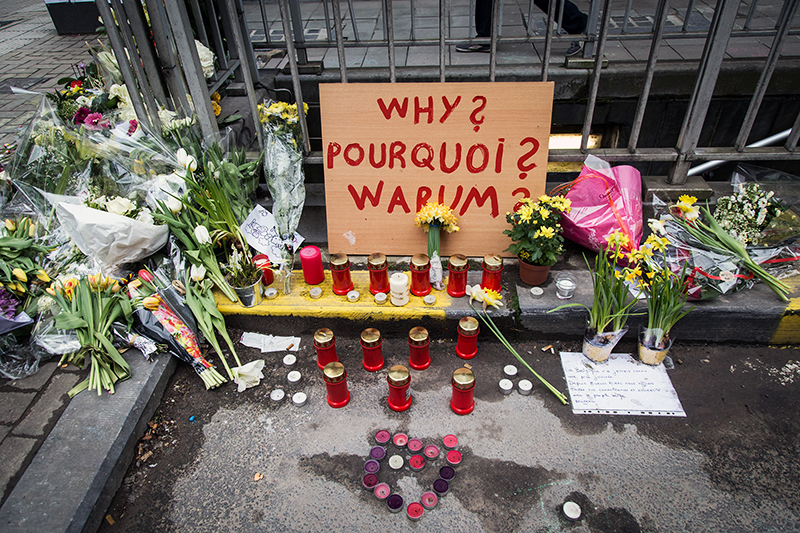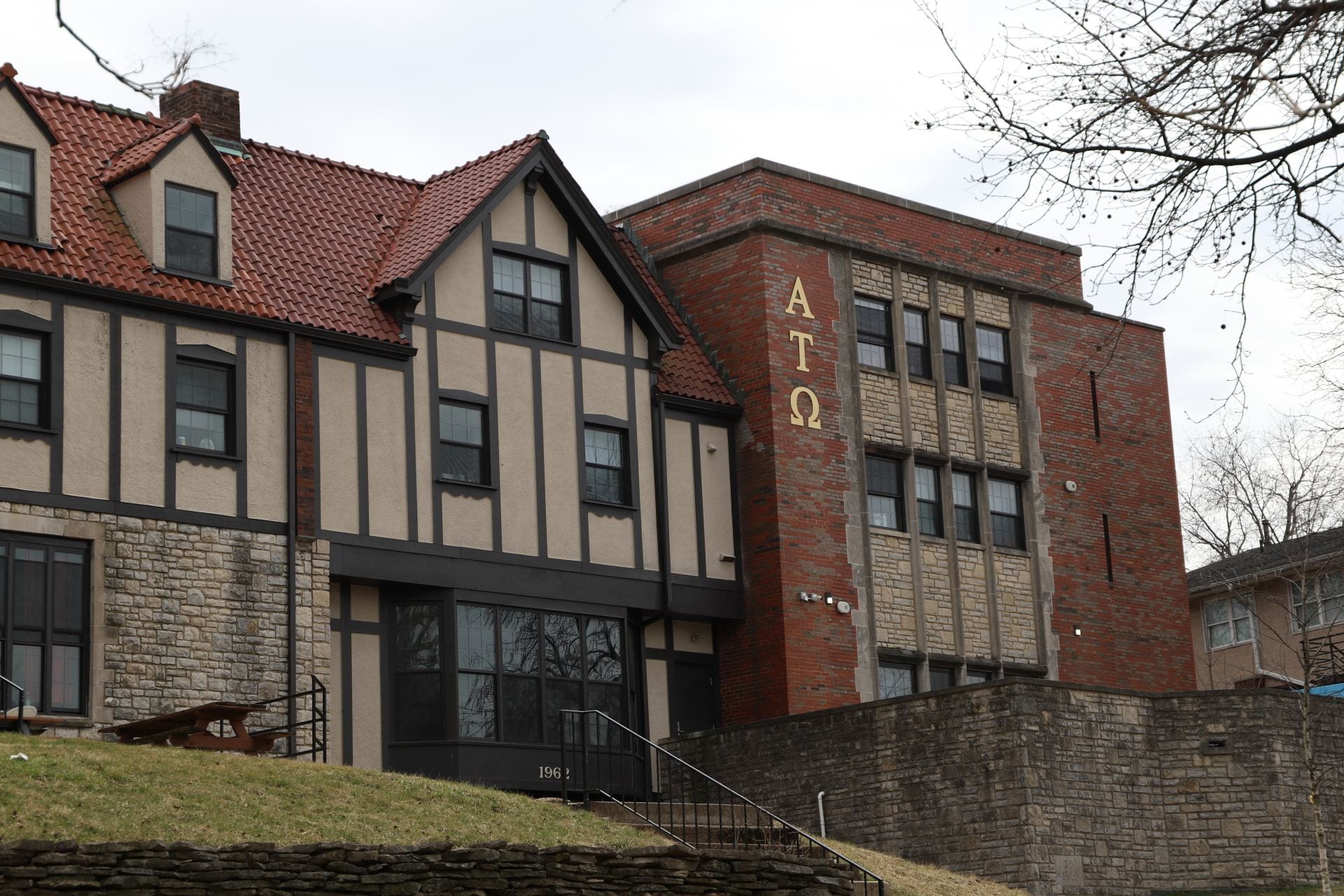
People create memorials around the Maelbeek station in Brussels, Belgium to pay tribute for the victims of the Brussels terrorist attacks on March 26 Credit: Courtesy of TNS
Although the deadly attacks in Brussels on March 22 occurred 4,055 miles away from Ohio State, the community still feels the effects.
The airport and subway bombings in Brussels injured 270 individuals and claimed the lives of 35. They appear to have been carried out by the same Islamic State network that implemented last year’s terrorist attacks in Paris, which killed 130 people.
One OSU student was in Brussels when tragedy struck: Kate Hartmann, a doctorate student in the College of Medicine’s Biomedical Sciences Graduate Program. Hartmann was in the city from March 19 to 23 for a string of meetings with the European Organization for the Research and Treatment of Cancer to discuss a research proposal she put in for a Fulbright Scholarship.
She said she was on her way to the same Brussels airport where a bombing had taken place just minutes earlier when she heard news of danger on the radio while riding in a cab. She had the driver turn around and take her to a hotel, where she was able to contact friends and family to let them know that she was all right.
“I left for the airport around 8 a.m., and that’s when the explosion went off,” Hartmann said. “I was very lucky with the timing of things.”
She decided not to make any moves that day, and was able to make it back to the U.S. by the following night by taking a flight out of Amsterdam. During her time in Belgium, Hartmann said she experienced people opening their homes, offering rides and reaching out to one another.
“I would hope that Americans would act the same way I saw the Belgian people acting: with care, concern and a lot of respect for one another,” she said. “This was horrible and tragic and something to be mourned, but it’s also something to move through and be proud of how your community handles that.”
Although it was a frightening experience, she said it won’t make her wary of further international travel.
“At the end of the day, it’s an active choice that I’m making to not let fear keep me from exploring and knowing the world,” Hartmann said.
Zac Barnett, a fourth-year in political science, also said he’s not hesitant to travel abroad given the current terrorism landscape.
“I think that now more than ever it’s important to travel internationally,” Barnett said. “Right now, many people want to clamp down against this faceless other, and that’s the worst thing we could possibly do. What we should be doing is trying to connect with all people.”
On Sunday, an apparent suicide bomb killed 72 people and wounded 300 at a park in Lahore, Pakistan.
This sentiment was echoed by Hartmann, who said that it’s important for Americans to believe in the goodness of people and to try and not let hatred and anger prevail.
“Lawmakers in the U.S. need to resist the easy temptation that they have to resort to Islamophobia and blame an entire religion for the acts of a very, very small minority,” Barnett said.
He added that most of these individuals don’t deserve to be treated like suspects.
In the aftermath of 9/11, the War on Terror created a narrative that the U.S. — along with the rest of the West — is constantly under threat by people who despise this way of life, said Emma Fete, a graduate teaching associate in the School of Communication who instructs a media and terrorism course. Fete stressed the importance of examining terrorism through larger historical and cultural lenses.
“We act like we’re in this age of terrorism that is new to everybody,” she said. “But the real truth is that terrorism has been around since the French Revolution and in the modern way that we know it.”
Terrorists throughout the ages have relied on the media to send their messages, Fete said, and news outlets must perform an ongoing balancing act of giving the public information and trying to hinder terrorism.
Both Fete and Barnett expressed regret over the terrorist events in non-Western countries that don’t receive half as much attention as those in Brussels or Paris.
“As horrible as these attacks in Paris and Belgium were, there were attacks in Burkina Faso, in Kenya, in Somalia; there was an attack in Iraq a couple of days ago,” Barnett said. “And we don’t talk about this ever.”
OSU’s European Architecture Studies program is the only study abroad group scheduled to stop in Belgium this year, and they will depart in May.


